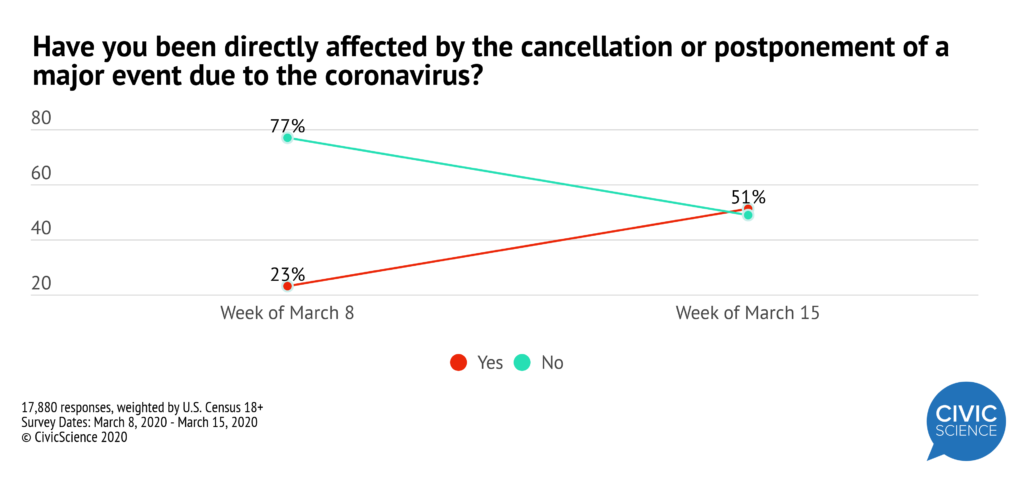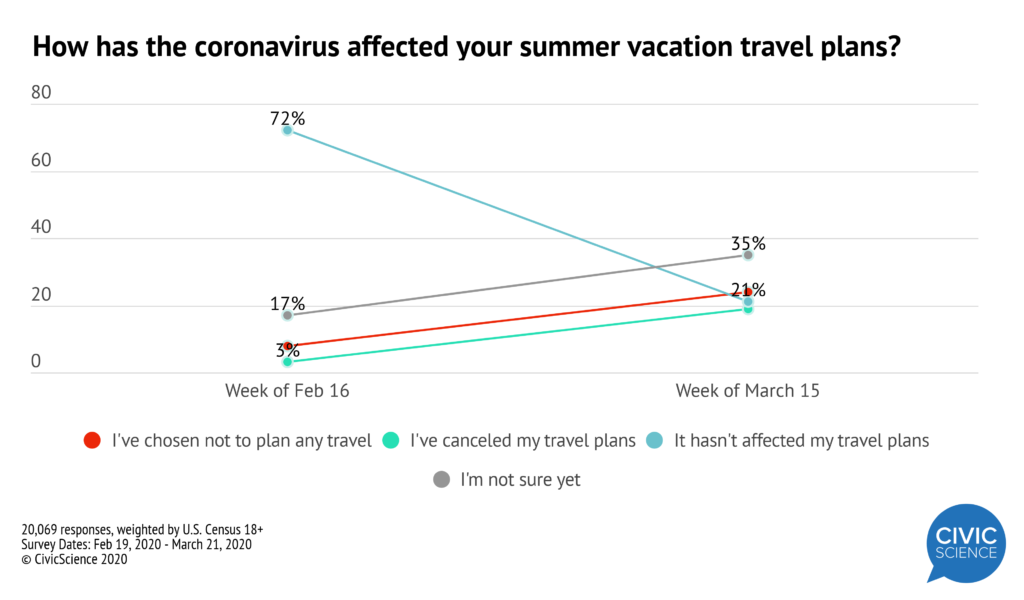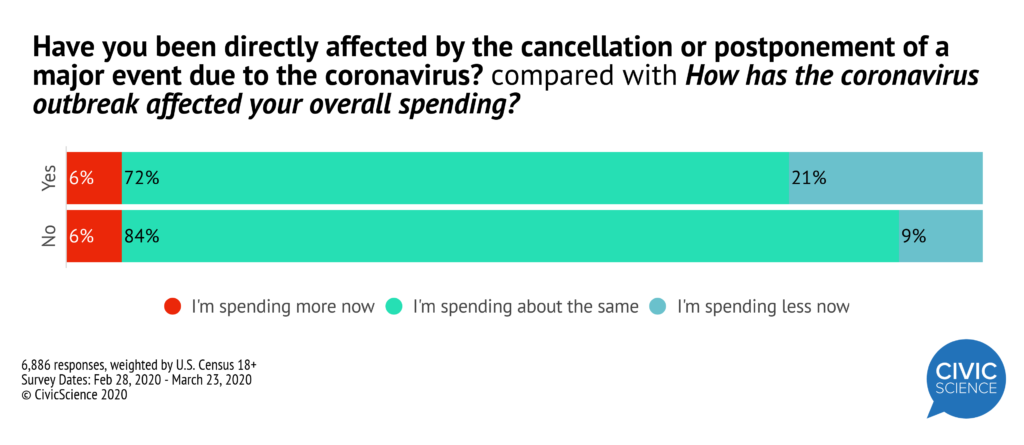The COVID-19 pandemic has spread so rapidly that it’s like someone blew a circuit on the fuse board of daily life, except there is no easy switch to flip. As of this reading, the number of U.S. adults who say their routines have been impacted by the virus has reached 77%. Those who say they are going to sporting events, concerts, and shows less because of the virus reached 85%. Everyone across the globe is feeling the chilling effect of the outbreak in some way.
As a result of shutdowns and mandates to stay at home, many events that have been on the calendar for months – possibly years – are getting canceled or postponed indefinitely. The postponement of the 2020 Olympics in Tokyo is one of the most tremendous examples of an event cancellation due to the coronavirus.
On a smaller scale, people are feeling the disruption. In one week, CivicScience data showed a 122% jump in the number of major events canceled as a result of the coronavirus. This could be anything from a big conference to a wedding.
The chart below shows the harrowing cross of trajectories: between March 8th and March 23rd, the week-over-week rate of cancellations was extreme. Now more than half of Americans say they have experienced a major cancellation. 
The rate at which people are canceling summer vacation plans is also unprecedented. In less than a month, people who said their travel plans have not been affected dropped from 72% to 21%. All other summer scenarios rose – people have either canceled plans, decided not to make them, or are now unsure what they will do when the warmer weather hits. Those who have been directly affected by a cancellation of a major event are significantly more likely to say their overall spending has decreased as a result of the virus. This isn’t surprising given the amount of money, as well as time, that goes into planning a major event. Some consumers won’t receive refunds for purchases they made for the future.
Those who have been directly affected by a cancellation of a major event are significantly more likely to say their overall spending has decreased as a result of the virus. This isn’t surprising given the amount of money, as well as time, that goes into planning a major event. Some consumers won’t receive refunds for purchases they made for the future. To close on a slightly lighter note, CivicScience data show that people are finding ways to manage their stress over the pandemic. And with the internet, people are still discovering ways to use their time and money, whether out of necessity, for entertainment, or just because. How people are living, behaving, and spending during this strange time is an ever-moving target, but one that CivicScience will continue to track.
To close on a slightly lighter note, CivicScience data show that people are finding ways to manage their stress over the pandemic. And with the internet, people are still discovering ways to use their time and money, whether out of necessity, for entertainment, or just because. How people are living, behaving, and spending during this strange time is an ever-moving target, but one that CivicScience will continue to track.








